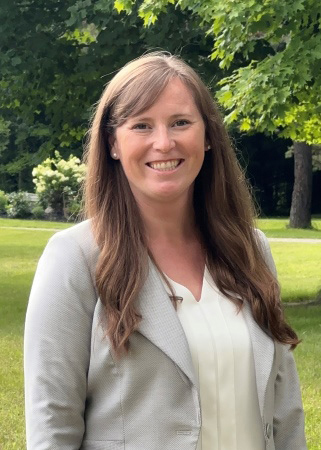Earlier this month, Canadian charitable organization AMS Healthcare announced two York University scholars as recipients of its 2023 History of Healthcare Awards Program: Jody Hodgins, a PhD candidate in the Department of History; and Kenton Kroker, an associate professor in the Department of Social Science, both in the Faculty of Liberal Arts & Professional Studies.
The AMS History of Healthcare Awards Program promotes scholarship, teaching and public interest in the history of health care, disease and medicine. Health-care professionals, students and researchers can apply for three types of awards: postdoctoral fellowships of $45,000, doctoral research awards of $25,000 and project grants of up to $10,000. The program aspires to convene networks, develop leaders and fund crucial activities in medical history, health-care research, education and clinical practice.
Hodgins and Kroker are two of the eleven 2023 award recipients selected by an expert review panel. These outstanding scholars will act as leaders to enhance the impact and value of history of health-care research in Canada and beyond and help shape the future of Canadian health care.
Jody Hodgins

Hodgins received the AMS History of Healthcare Doctoral Research Award, worth $25,000, for her project titled “Meeting Demands for Animal Healthcare: Veterinary Medicine in Rural Southern Ontario, 1862-1939,” which will explore the interdependence between animal, human and environmental health to show advancements in public health and the role veterinary medicine had in shaping our current understanding of modern medicine and health-care practices.
“I am grateful to AMS Healthcare for their support of the history of medicine community and honoured to receive this award alongside such company,” she said.
Hodgins will examine four key developments that occurred between 1862, marking the establishment of the Ontario Veterinary College, and 1939: the production of animal health knowledge in popular sources; the need for veterinary intervention with unrecognizable diseases that could transfer from animals to humans; the popularity of quack medicine; and the technological advancements available with the rise of professionalization.
“I am thankful for this opportunity and the support of my supervisor, Sean Kheraj, and committee members Jennifer Bonnell and Colin Coates, whose invaluable guidance will help me to contribute a history of veterinary medicine that offers a better understanding of how people living in rural communities managed health before professional veterinarians were quickly available and affordable in rural environments,” she said.
Kenton Kroker

Kroker received the AMS History of Healthcare Project Grant, worth $20,000, for his historical study titled “Innovation, Expertise, and Equity: Creating Sleep Medicine within Canada’s Universal Health Care System, 1970 – 2000.” Kroker asks what effects Canada’s evolving system of universal health care had on sleep medicine since 1970.
“I’m thrilled to use this grant money to hire a Science and Technology Studies doctoral student (Hana Holubec) to help me examine the evolution of sleep medicine in Canada,” he said.
Drawing inspiration for his study from his late colleague Professor Gina Feldberg, who called for more comparative studies to better understand how health care has unfolded differently in Canada and the U.S., Kroker has been fascinated by the delicate balance Canadians try to execute in creating an accessible health-care system that also facilitates innovation.
“Medical interest in sleep appeared – almost out of nowhere – simultaneous with the development of Canada’s universal health-care system,” he explained, “so I started to wonder whether a close historical study of this field might reveal the ways in which the Canadian model of health-care provision affected the development of this new medical sub-specialty.”
To execute his project, Kroker will combine personal interviews of Canadian sleep medicine researchers and practitioners with a historical analysis of published biomedical literature to help reveal the ways Canada’s universal health-care system impacted technological innovation, patient care, and professional status and structure in an emerging field of medical expertise.
“The results,” he said, “will illustrate the complex ways that equitable access and biomedical innovation have interacted in the recent past. It might also help us better understand the benefits and drawbacks of our current system of health-care provision – and perhaps even improve it.”
Applications for the 2024 AMS History of Healthcare Awards will open on Jan. 8, 2024, with over $250,000 in funding available. For more information, visit the program website.


